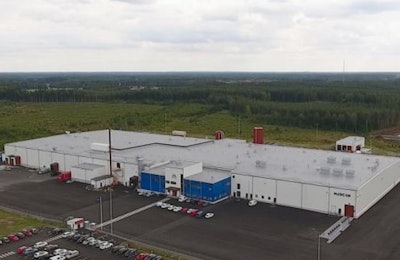
HKScan saw its losses narrow and its net sales increase on a year-over-year basis for the second quarter of the 2019 fiscal year, citing its Finnish poultry business as the biggest contributor to that turnaround.
The Nordic meat and poultry company reported loss of EUR10.4 million (US$11.67 million) for the quarter that included April, May and June, an improvement from the same months in 2018, when the loss was reported at EUR16.4 million (US$18.4 million). The company’s net sales jumped from EUR433.5 million (US$486.3 million) to EUR 439.4 million (US$492.9 million).
“HKScan’s second-quarter comparable result was still slightly negative, but improved clearly from the comparison period. The result is not on a satisfactory level, but the direction during the first half of the year has been correct,” HKScan CEO Tero Hemmilä said in a press release.
HKScan in 2017 opened a new poultry processing plant in the Rauma district of Lakari, Finland, which Hemmilä stressed has been extremely good for business.
“The most significant factor affecting the improved financial performance during the second quarter continued to be the result of our Finnish poultry business,” said Hemmilä. The positive development in the Rauma unit has continued, and the improved delivery capability has resulted in clear sales growth. The EBITDA of the Finnish poultry business continued to be positive during the second quarter. Positive development is also supported by the strong position of the Kariniemen brand. Moreover, successful operational efficiency improvement actions and firm cost reduction measures in all market areas contributed to the result together with improved sales margins. The group’s cash flow also improved clearly.
ASF’s impact on HKScan
The company also reported exports of pork from Finland to China “proceeded according to plan and the first year of export have been met.”
Remarking on the impact of the African swine fever (ASF) outbreak on HKScan, Hemmilä said: “The strong reduction of pork production in China caused by African swine fever has increased the demand of pork in the global market and has a positive impact on the price level of export sales. The exceptional pork situation in China also affects, to an extent, the demand and price level of other meat categories.”

















